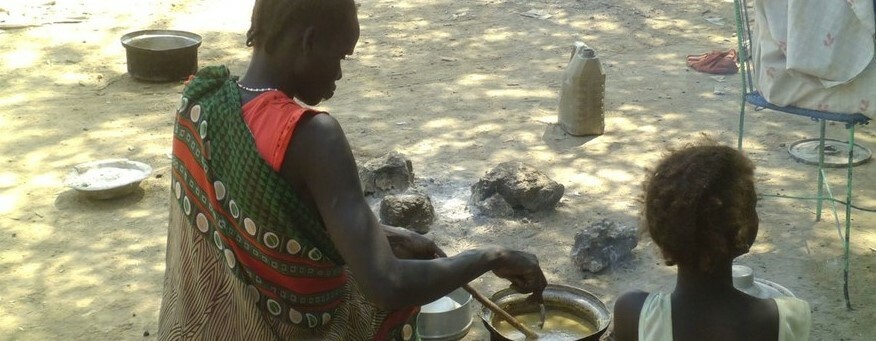Citizens and officials in Warrap State have raised concerns about a severe food shortage in Gogrial West and Twic Counties. The crisis has also begun to spread to neighbouring areas.
Gogrial West County shares borders with Twic County in the northeast, Gogrial East County in the east, and Aweil in Northern Bahr El Ghazal State to the west.
Gogrial West County experienced heavy rains and river flooding last year, resulting in food shortages and waterborne diseases among the local population.
The soaring prices of essential commodities have made it difficult for residents of Gogrial West and Twic Counties to cope with their living conditions.
Speaking to Radio Tamazuj on Thursday, Angeth Teng, a resident of Akuac village in Akon town, shared her perspective, stating, “While everything seems fine in the village, the problem of food scarcity is overwhelming.”
“The price of malwa has risen to SSP 3,000, compared to the previous SSP 200 when goods were imported from Sudan. Additionally, one kilo of sugar, which used to cost SSP 700, is now priced at SSP 1,500. Similarly, a malwa of wheat and Ugali are being sold for SSP 10,000 and SSP 9,000, respectively,” she added.
Paul Akuien, a resident of Akuac Awan Payam, expressed his concern about the escalating prices of sorghum, flour, and sugar, which have made it difficult for citizens to sustain their lives.
“A malwa of dura is now being sold for SSP 3,000 in the AKuac market, and people are suffering due to the exorbitant prices of food items. Many people work on the farms of wealthier individuals to earn some income and afford basic necessities such as a cup of flour to feed their families. Unfortunately, there has been a scarcity of goods coming from Wau and Sudan,” he explained.
Aguek Manut, a 24-year-old mother of three from Wunrok Payam in Twic County, emphasized the unbearable living conditions and called upon the government to provide sorghum at affordable prices.
“In Wunrok Payam, a malwa is priced at SSP 3,200, and grinding it costs an additional SSP 400. This amounts to a total of SSP 3,600, compared to the time when goods were imported from Sudan, when we could buy malwa for SSP 2,500 and grinding for SSP 200,” Aguek elaborated.
She further highlighted the escalating prices of essential items like tea and sugar, making life increasingly challenging for the local population.
Garang Mangok, the Twic County chairperson of the Chamber of Commerce, confirmed that high prices were also prevalent in Twic County, similar to Gogrial West County. He stated, “In Twic County, a 50 kg bag of flour is being sold for SSP 60,000, compared to SSP 37,000 in May. Similarly, a 50 kg bag of white sugar now costs SSP 65,000, up from the previous price of SSP 38,000. However, people in Turalei and Wunrok use malwas as alternatives for sugar and flour.”
Mangok further highlighted the challenges faced by businesses due to the continuous increase in commodity prices and the lack of goods from Sudan. He also attributed the instability in the market to the strengthening of the United States dollar against the South Sudanese Pound and the diversion of sugar and flour by Sudanese Arabs to the Darfur region.
Victor Wek, the commissioner of Gogrial West County, acknowledged the food crisis in his county, emphasizing the insufficient supply of food items in local markets. “While Gogrial West County maintains adequate security, it is severely affected by hunger. Food prices in Gogrial town have dramatically risen to SSP 3,500, and the same trend is observed in Akhon north, Mayen Pajok, Mayom Totin, and Akhon town,” Commissioner Victor explained. He attributed the problem to the closure of the trade route from Sudan, which previously served as a significant source of commodities for the region.
Muhamed Musa, a Sudanese trader in Kuac North Payam, Gogrial West County, shed light on the expensive transportation costs from Juba to Warrap State, which contribute to the high prices in local markets.
“The charges for truck transportation have risen significantly, from SSP 2,000,000 to 3,000,000 previously to SSP 5,000,000 to 55,000,000 now. Additionally, individuals involved in loading goods in Juba charge high costs, and Warrap State imposes taxes. Checkpoints along the Juba-Warrap road also demand extra money from our drivers. Consequently, the final price of food commodities has skyrocketed. However, as we purchase goods in South Sudanese Pounds from Juba, the issue of the United States dollar does not affect us,” Mohamed clarified.




